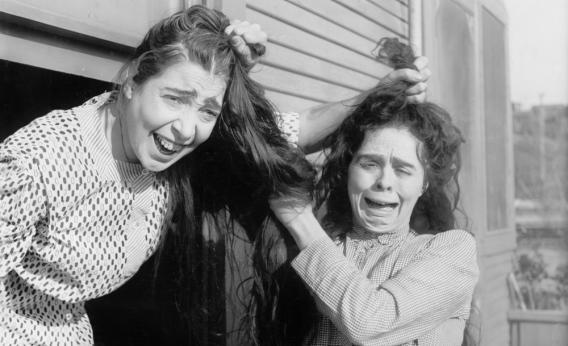The latest mommy blogger dustup—a mere skirmish in a decade-long tiresome and trumped up Internet world war—happened last week, when a mother of three named Janine Kovac wrote a post for the website Role/Reboot in which she addressed a “friend” named Doris, “who thinks of herself as a career woman,” and is on the fence about having kids. Kovac’s letter to Doris was sneering and condescending, implying that motherhood is the only way to become a more selfless and enlightened soul. So of course it went viral.
But in a chest-beating apologia today in Salon, Kovac says the post was meant to be satirical (there is no Doris), only no one got the joke: She was widely and deservedly thumped as an obnoxious “sanctimommy” by several women’s websites.
While some of the commentariat response to Kovac was excessively mean, her apology to the Internet was also excessive, unnecessary and really unsatisfying. First off, it’s pretty useless to apologize to the Internet. The Internet doesn’t care. Secondly, if the original piece was really meant as satire, there’s nothing to apologize for, other than bad satire. But the actual content of the mea culpa tells a different story: It’s the classic non-apology apology. “I wish I didn’t have snarky thoughts,” Kovac writes. “But I do. I gave voice to them and created an image of me that is not my best self. It was a mistake.” It seems she’s mostly upset because people are angry and she looked bad—not because she really thinks things about other women, like:
“In a way, telling yourself that you’re not ready to become a parent is like saying, ‘I’m not ready to broaden my horizons.’ Or, ‘I’m not ready to be humbled on a daily basis.’ Or, ‘I’m not ready to feel my heart swell up with admiration and pride.’”
It seems like Kovac really does think that motherhood makes you a better person (which is why it makes sense that Kovac says she based the toxic, judgmental “Doris” in part, on her pre-child self). And it’s telling that she didn’t even take the backlash seriously until it came from her writing peers. When it was just from the nameless, faceless commenter hoards, she seemed to believe what her brother told her, which was that “people are just projecting their insecurities” onto her—not true in this instance, but pretty much the definition of the mommy wars, generally.
